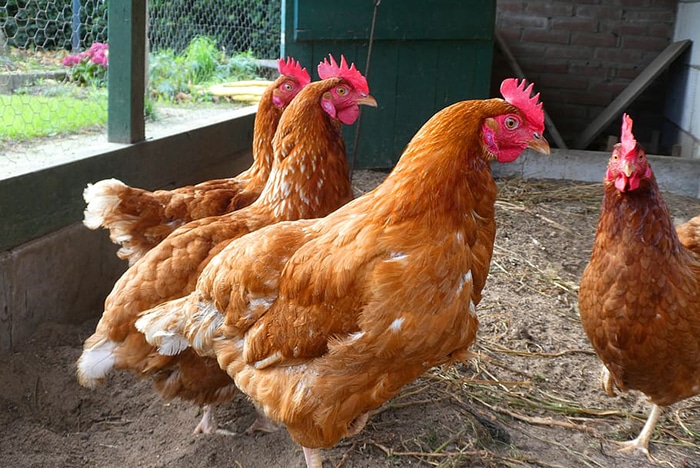
By Jenna Cocullo, Local Journalism Initiative
Council chickened out over supporting a bylaw that would allow urban dwellers to raise the fowl.
West Kent Coun. Mark Authier brought forward a motion at Monday night’s virtual council meeting asking city staff to draft a report and bylaw amendments that would allow single-family dwellings to raise up to four chickens in urban and rural residential areas.
“I think this is great. Because of COVID, people are not trusting the food as much as they used to, and all the different recalls on things. So people are looking to raise their own, and that’s why I brought this forward,” Authier said.
The motion failed through a tied vote.
Chatham Coun. Brock McGregor and South Kent Coun. Anthony Ceccacci said although they do not plan to own their own chickens, they were supporting the motion based on the voluminous feedback they received from constituents.
However, other councillors were concerned over smell, noise, the potential to attract rodents and negative health impacts.
“I just can’t support the motion,” said North Kent Coun. Joe Faas, who pointed out a previous attempt to allow livestock in urban areas failed in June 2013 for the above reasons.
Ben Srokosz, a vocal Chatham-Kent resident on sustainable home gardening, said he was seeing a resurgence of urban residents wanting to grow their own food.
“(The failed motion) is disappointing, but I understand that the councillors have to represent all of Chatham-Kent’s viewpoints,” he said.
Srokosz said raising chickens in a coop is no different than raising a dog or any household pet.
Other communities across Canada have successfully allowed urban residents to own their own chickens with a stipulation that no slaughtering is allowed.
“They produce eggs, that you need of course, but also they take all of your throwaway kitchen scraps and they turn them into manure so that you can compost it and throw it back in your garden. They also eat bug pests and tics in your yard that attack your plants,” he said.
Other than the sustainability component, Srokosz said the idea was also about enjoying raising animals and his teaching kids where their food comes from.







Useless people in charge. Let the people of our city do what they want in their own homes.